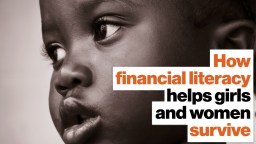MICHAEL HOBBES: Well, there's a couple reasons why college has gotten so expensive. First of all is: States are cutting higher education funding. Second thing is: supply and demand.
What we have is a crisis where to get onto the job ladder, the few decent jobs left—that have healthcare, that have security, that have a pension—they all require a college degree. So you have to go to college, basically. And yet the actual number of spaces in colleges hasn't really increased. Harvard admits something like ten percent more now than they did in the '70s, so there are more people competing for fewer spots, and that means that the colleges can just raise the price, and they'll find somebody to pay it. No matter how high it gets, somebody is out there paying it, and so they just raise it and raise it and raise it, and we keep paying it. Colleges are adding services like rock climbing gyms, extra administration, they're doing more marketing, they're doing these really expensive study abroad programs and, again, they're competing over the rich kids, they're competing over the ten percent and the one percent – the people who are not "cost sensitive". Colleges keep throwing services and throwing bells and whistles at them, and they're just paying it, because the entire economy is shifting toward marketing itself to the top ten percent and the top one percent, and those are the kids that are going to college now.
The college premium – how much extra you earn for going to college – is 70 percent; you earn almost double if you go to college, on average, than if you don't go to college.
So we're in this bind where you have to go to college or else you end up in a really bad job for the rest of your life, but then to go to college you have to go into $80,000, $100,000, more than that, debt. I interviewed somebody for the article that is paying off $311,000 in debt. I interviewed another person who was actually a bankruptcy lawyer who was paying $2000 a month in student loans after he got out of college. And so when you look at how many of us have student loans—and that we're paying them off at the time when we're early in our careers, we're not as established in our fields, we can't afford decent housing, we aren't earning very much at that time, and then we're also, on top of that, paying a couple hundred dollars a month extra—that's money we're not saving, that's money we're not putting to a pension, that's money we're not putting to a home—and that extends the period of what our parents call "adolescence", but really, insecurity—that extends our period of insecurity into our 30s and our 40s. And so if you look at any poll of millennials, more than half say they have put off marriage, they have put off children, they have put off buying a home because of their student loans. And student loans are the only form of debt that you cannot get rid of in bankruptcy, so they are literally inescapable. Even if you die, in some states your partner might actually have to pay them off for you. So this is a ball and chain around the ankle of millions of millennials, and again, it's not a choice that we made, it's the economy that we're in, that to get onto the job ladder you need to have an education.
One of the things that we forget, and especially our parents forget, is how much cheaper college used to be. When my dad was in college he worked for ten hours a week in the cafeteria, and that was enough for his tuition and a little bit of his rent. That doesn't sound familiar to anybody I know. And what has happened since then is the cost of education has gone up between 400 and 1200 percent, depending on the kind of school you go to. Meanwhile, minimum wages haven't really budged, general wages haven't really budged, and the price of everything else has gotten higher too. So in the early '70s it took around 300 hours of minimum wage work to afford a four-year education. By the 2000s it took 4,400 hours of minimum wage work to afford a four-year education.
There are a lot of really smart people who look at a debt of $100,000 when they get out and minimum payments of hundreds of dollars every month and go, "It's not worth it." And the problem is the economy really isn't working for them. If you look at any measure of poverty, unemployment, there's never been a time in America where it's worse to not be a college graduate. If you want a pension, if you want healthcare, if you want decent wages, if you want security, all of those jobs now require college degrees. And even if they don't require college degrees, there's now so many people with college degrees they're getting those jobs. Right? The hiring manager at a coffee shop looks at two resumes and one has a college degree and one doesn't, even if the job doesn't necessarily require a college degree he's going to hire the college grad because he thinks they're smarter, harder working, or whatever. And so you've got kids that are now systematically disadvantaged because they didn't go to college, but it's understandable that they wouldn't want to given the cost. And so we need to think about all of the opportunities that we're missing by having an entire generation of people who look at the cost of college and decide not to go, and what those people could be doing if they went.
I don't know if other people have noticed this, but at my high school the rich kids went to college and the smart kids went to college. And it feels like there's this huge tranche of kids that were sort of normal kids—they weren't exceptional—and those mediocre kids, if they were rich, they went to college, and if they were exceptional and they weren't rich they went to college. But that leaves out this huge structure of all these millions of people who were just kind of average but just didn't go because they ended up doing something else.
I think we as Americans forget that we're the only country where college costs this much, and we're the only developed country without a functioning safety net. It's a lot better in other countries. I actually went to graduate school twice in Europe, because I couldn't afford to go in America. And in lots of European countries it is free. Tell everyone you know. And in a lot of other countries it's really cheap. And many of the degrees are in English, and those countries are run by adults. They're great. Go there.
I also went to community college for two years. Community college has a bad reputation for no particular reason. Community colleges are great. So people should consider going to community college and then transferring to a two-year university. There's nothing wrong with that. We're all doing our best. Find a cheap way that works for you, and if you can get a visa to leave America and stay left, then do that too.





